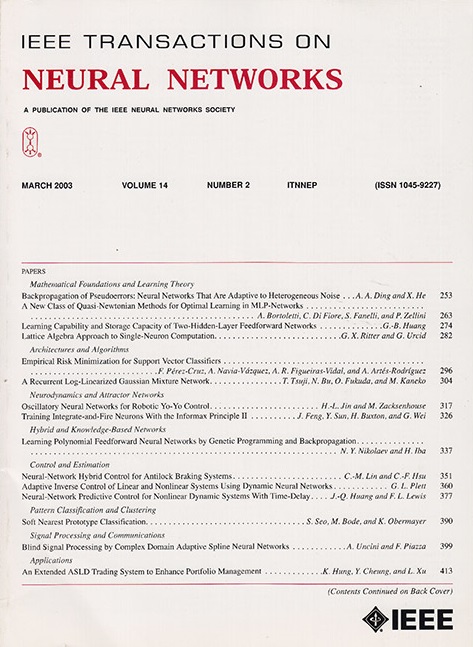Ape优化器:基于p-Power自适应滤波器的深度学习优化方法。
IF 8.9
1区 计算机科学
Q1 COMPUTER SCIENCE, ARTIFICIAL INTELLIGENCE
IEEE transactions on neural networks and learning systems
Pub Date : 2025-09-25
DOI:10.1109/tnnls.2025.3610665
引用次数: 0
摘要
深度学习已广泛应用于各个领域。目前广泛使用的优化器,如SGD、Adam及其变体,都是基于模型训练过程中产生的梯度噪声服从高斯分布的假设而设计的。然而,最近的实证研究发现,梯度噪声往往不服从高斯分布。相反,噪声表现出与$\alpha $稳定分布一致的重尾特征,这使人们怀疑在高斯噪声假设下设计的优化器的性能和鲁棒性。受自适应滤波领域的最小平均p-幂(LMP)算法的启发,我们提出了一种新的用于深度学习的优化器Ape。Ape集成了p-power调节机制来压缩大梯度和放大小梯度,减轻了重尾梯度分布的影响。它还采用了一种方法来估计为$\alpha $稳定分布量身定制的秒矩。在基准数据集上的大量实验表明,与现有优化器相比,Ape在提高准确性和训练速度方面都是有效的。Ape优化器展示了跨学科方法在推进深度学习优化技术方面的潜力,并为该领域未来的创新奠定了基础。本文章由计算机程序翻译,如有差异,请以英文原文为准。
Ape Optimizer: A p-Power Adaptive Filter-Based Approach for Deep Learning Optimization.
Deep learning has been widely applied in various domains. Current widely-used optimizers, such as SGD, Adam, and their variants, are designed based on the assumption that the gradient noise generated during model training follows a Gaussian distribution. However, recent empirical studies have found that the gradient noise often does not follow a Gaussian distribution. Instead, the noise exhibits heavy-tailed characteristics consistent with an $\alpha $ -stable distribution, casting doubt on the performance and robustness of optimizers designed under the assumption of Gaussian noise. Inspired by the least mean p-power (LMP) algorithm from the field of adaptive filtering, we propose a novel optimizer called Ape for deep learning. Ape integrates a p-power adjustment mechanism to compress large gradients and amplify small ones, mitigating the impact of heavy-tailed gradient distributions. It also employs an approach for estimating second moments tailored to $\alpha $ -stable distributions. Extensive experiments on benchmark datasets demonstrate Ape's effectiveness in improving both accuracy and training speed compared to existing optimizers. The Ape optimizer showcases the potential of cross-disciplinary approaches in advancing deep learning optimization techniques and lays the groundwork for future innovations in this domain.
求助全文
通过发布文献求助,成功后即可免费获取论文全文。
去求助
来源期刊

IEEE transactions on neural networks and learning systems
COMPUTER SCIENCE, ARTIFICIAL INTELLIGENCE-COMPUTER SCIENCE, HARDWARE & ARCHITECTURE
CiteScore
23.80
自引率
9.60%
发文量
2102
审稿时长
3-8 weeks
期刊介绍:
The focus of IEEE Transactions on Neural Networks and Learning Systems is to present scholarly articles discussing the theory, design, and applications of neural networks as well as other learning systems. The journal primarily highlights technical and scientific research in this domain.
 求助内容:
求助内容: 应助结果提醒方式:
应助结果提醒方式:


